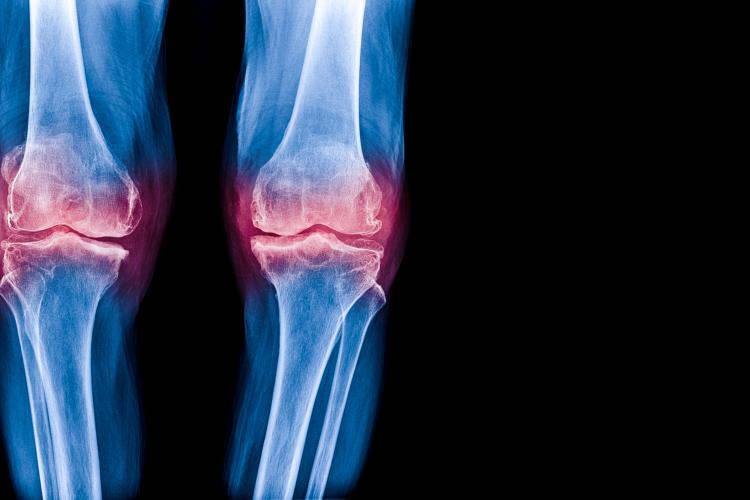APPROACH showed that the models were better at identifying patients whose disease was likely to progress, which could potentially make drug trials more effective

Knee osteoarthritis is a common form of arthritis and is the result of wear and tear. Cartilage in the knee gradually wears away, resulting in pain and stiffness and ultimately, reduced mobility. It often leads to knee replacement surgery.
One of the big challenges in developing drugs to treat OA is getting the right people in clinical trials. Ideally, the trials should include people whose disease would progress (i.e. get worse) during the duration of the trial, allowing the drug to be properly evaluated as effective or not. However, it’s hard to figure out which patients have a high chance of disease progression. Conventional inclusion criteria don’t tend to select the right kind of patients. Many of the patients have little or no disease progression during the trial, so it's hard to make a good judgement as to how effective a drug is. This results in ineffective clinical trials.
When researchers from the APPROACH project were selecting patients for a study to uncover biomarkers of OA progression, they wanted to make sure they could select patients who will progress during the observation period.
To do this, they took data from two long-term knee osteoarthritis studies (OAI and CHECK) to identify the best performing machine learning models. They found that the model-based selection outperforms the conventional inclusion criteria, reducing by 20–25% the number of patients who show no progression. This result could lead to more efficient clinical trials.
Read the full paper below.
